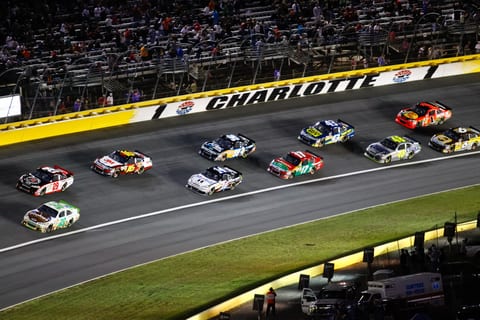
The Military’s NASCAR Sponsorships Net No Recruits While Speeding Off With Tax Dollars
Jessica Wright
May 30, 2012

One of the most obvious symbols in NASCAR is the prominent sponsorship that is displayed on each car. From candy bars to beer, the intent of these sponsorships is to increase product awareness (to hopefully increase sales) and give racing teams the much needed cash to field a team to be able to compete on a weekly basis. Many NASCAR fans have become accustomed to seeing military sponsorship on these cars. On May 18, Congresswoman Betty McCollum (D-MN) released her most forceful argument yet against military sponsorship of NASCAR race teams. McCollum found that, despite spending $26.5 million to sponsor the race car driven by Dale Earnhardt, Jr. the National Guard signed zero new recruits in 2012 as a result of the sponsorship. None.
With a total of more than $130 million dollars spent sponsoring Dale Earnhardt Jr.’s National Guard car over the last five years, the car’s owner, Rick Hendrick, is the recipient of one of the most expensive marketing contracts ever doled out by the U.S. government. While the National Guard claims this is “a very effective recruiting tool,” the numbers say differently. In the past year, the National Guard’s NASCAR sponsorship is credited with attracting only 20 qualified candidates, none of whom actually ended up joining the military, according to USA Today.
The National Guard is not alone in its failed sponsorship of NASCAR teams. Driver Ryan Newman’s Army sponsorship is also being called into question. In 2011, the U.S. Army spent just over $7 million on a 12-race agreement to sponsor Newman’s car. Newman cites raising awareness and education as major benefits of the sponsorship but only vaguely mentions it as “helping recruitment-wise.”
Rep. McCollum is a co-sponsor of a defense bill that would prohibit military sponsorship of NASCAR and other professional sports. The legislation has resonated with unlikely right-wing constituents. Rep. Jack Kingston (R-GA) publicly defended the bill, stating that he cannot see any justification for that kind of spending. Others seem to agree, as the bill passed through the House Appropriations Committee on May 17.
This threat of losing his sponsorship has caused Earnhardt to fire back. His solution to Rep. Kingston’s opposition? Visit a race. Earnhardt claims that if Kingston could just see the military sponsorships in action, then the Congressman would change his mind. Even if Kingston agrees that watching the National Guard logo race around the track at 200 mph is impressive, it still doesn’t change the facts. The pricey sponsorship is useless in attracting new soldiers and is one of the most ineffective uses of tax dollars imaginable.
